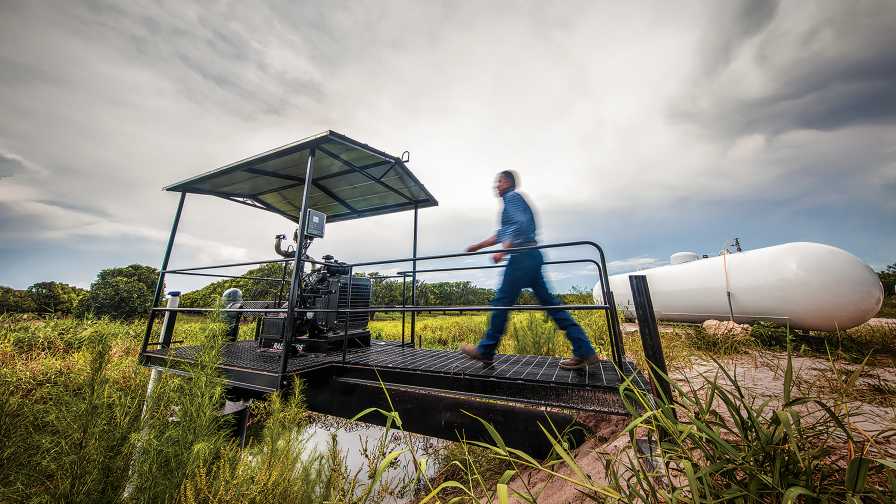3 Benefits of Propane Irrigation Systems for Florida Farmers

Propane provides is a portable source of energy and can power irrigation systems not tethered to gas lines or electric grids.
Photo courtesy of the Propane Education & Research Council
Between hurricanes, pests, and the state’s sun-drenched, tropical climate, Florida farmers face a unique set of challenges. To ensure a successful farming operation in such a demanding environment, farmers need reliable, sustainable equipment. Propane irrigation engines have proven to provide clean, efficient, cost-effective power to farms across the state. From smaller family farms to large-scale operations like Tamiami Citrus and U.S. Sugar, producers trust propane for their irrigation needs.
Here are three key benefits of propane-powered irrigation engines for Florida farmers:
1. It’s a Clean Fuel
Florida farmers are navigating a fragile ecosystem, which is why they need clean equipment to prevent contamination and protect the safety of their wetlands. Propane is a nontoxic, nonpoisonous energy source that won’t contaminate soil or groundwater, making it safe to use anywhere. Similarly, if a propane leak occurs, it does not pose an environmental hazard to drinking water or marine ecosystems, whereas spilled gasoline can contaminate groundwater beyond health advisory labels. And in the event of a leak, the smaller flammability range of propane compared with gasoline, ethanol, methanol, hydrogen, and natural gas reduces the likelihood that propane will ignite unintentionally.
Propane is an approved clean fuel listed in the 1990 Clean Air Act, and propane engines that comply with the U.S. EPA and the California Air Resources Board (CARB) emissions certifications are available for sale in all 50 states.
2. Propane Engines are Cost-Effective
When comparing costs of various fuels, farmers find that the cost advantages of propane make it a smart business decision. New propane-powered engines typically cost 20% to 40% less than diesel engines for comparable power. Plus, propane generally costs less compared to conventional fuels and other alternative energy sources, even as fuel prices fluctuate.
The Propane Farm Incentive Program can make propane equipment even more affordable by offering a financial incentive of up to $5,000 on the purchase of new propane-powered farm equipment. In addition, incentive program participants have noted that propane irrigation engines can reduce fuel costs per hour by 45% and energy consumption per hour by 10% compared with diesel irrigation engines.
It’s important to also take maintenance and downtime costs into consideration. Because propane operates so cleanly, it creates fewer deposits on engine components, leading to less maintenance and a longer engine life. Plus, with propane, farmers can avoid high electricity costs during peak hours.
3. It’s a Flexible, Portable Fuel
Farmers across the country can agree that flexibility is a key element in successful farming. Fortunately, propane is a portable fuel so it’s available whenever and wherever farmers need it, without being tethered to the natural gas line. Because propane operates on an independent system, farmers aren’t affected by electric grid interruptions and can therefore increase reliability compared with electric irrigation motors.
Visit Propane.com/Agriculture to learn more about propane irrigation engines.








